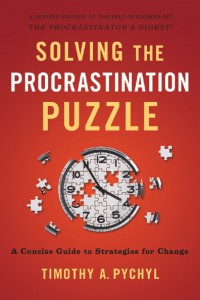 Real solutions for Procrastination from Dr. Timothy A. Pychyl, part 1
Real solutions for Procrastination from Dr. Timothy A. Pychyl, part 1
Student Success Podcast No. 13, Jan. 15, 2014
Today’s Guest: Timothy A. Pychyl, Ph.D.
Dr. Pychyl shares his incredible knowledge, experience, research, and insight into the nature of procrastination and how to overcome it. Dedicated to bettering people’s lives, he uniquely applies academic concepts in a way we can all understand and appreciate.
This is part 1 of 2 segments we are publishing on the Student Success Podcast. Tim has also published his own version of the interview on his “iProcrastinate” podcast. Continue reading









![urgent_msclipart_C900434758[1]](http://school4schools.com/blog/wp-content/uploads/2014/01/urgent_msclipart_C9004347581-150x150.png)






